As people pay more and more attention to health and beauty, the requirements for the safety and naturalness of food additives are getting higher and higher. In the sweetener market, a natural sweetener extracted from Monk fruit is gradually gaining favor among consumers. It not only has super sweetness and low cost, but also has multiple health benefits and a wide range of applications. This article will deeply discuss its characteristics and advantages from the perspective of development to use.
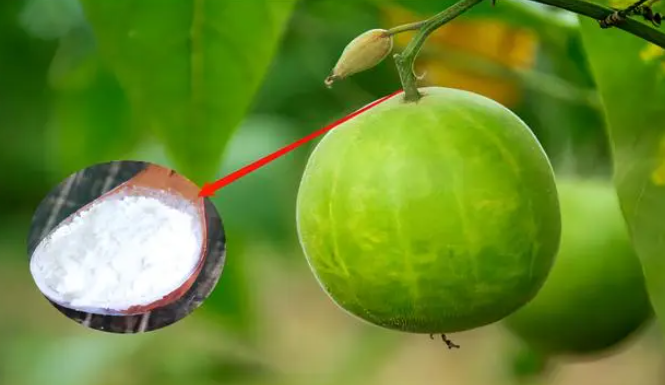
Monk fruit is a plant of the Cucurbitaceae family native to southern China. Its fruit is called "magic fruit" and has the effects of clearing the lungs and moistening the throat, clearing away heat and detoxifying. Monk fruit was first discovered in the Song Dynasty in the 13th century. At that time, monks planted and ate monk fruit in Guilin, Guangxi, so monk fruit is also called "monk fruit". The sweet component of monk fruit is a compound called mogroside, which is about 300 times sweeter than sucrose, but has only 1/300 calories. When mogroside dissolves in water, it forms a white emulsion, so it is also called "monk fruit milk".
It refers to a mixture of mogrosides and other active ingredients extracted from monk fruit, usually in the form of light yellow powder or brown extract. Its research began in the 1960s, when researchers from the Guangxi Institute of Botany, Chinese Academy of Sciences, conducted a systematic chemical analysis and physiological activity study on monk fruit, discovered the structure and properties of mogrosides, and confirmed its antioxidant, anti-cancer, anti-inflammatory, and anti-allergic effects. Subsequently, researchers from the Shanghai Institute of Organic Chemistry, Chinese Academy of Sciences, further separated and purified mogrosides, obtained high-purity mogrosides, and formulated national standards.
The application of monk Fruit Extract at home and abroad began in the 1980s, when countries such as Japan and the United States began to introduce and plant monk fruit and use it as a natural sweetener in food and beverages. Because it has the advantages of low calories, high sweetness, natural safety, no side effects, and has multiple health benefits, it has been widely welcomed and respected. At present, it has been recognized as a safe food additive by many countries and regions such as the United States, Japan, the European Union, and Australia, and is widely used in beverages, baking, condiments, snacks, dairy products, personal care and other fields.
Monk fruit extract has many functions and uses, such as low calories, zero calories, suitable for diabetics and people who want to lose weight: its sweetness is 120-300 times that of sucrose, but its calories are only 1/300 of sucrose, and it does not affect blood sugar and insulin levels, making it an ideal substitute for sugar. It can be used to make a variety of low-calorie, sugar-free or low-sugar foods and beverages, such as coffee, tea, juice, ice cream, yogurt, biscuits, chocolate, etc., which can not only meet the demand for sweetness, but also control calorie intake, which is conducive to controlling weight and blood sugar.
Antioxidant, anticancer, anti-inflammatory, anti-allergic: Monk fruit extract contains a variety of active ingredients, such as mogroside, mogroside alcohol, etc., which have the functions of scavenging free radicals, inhibiting tumor cell proliferation, regulating the immune system, inhibiting the release of histamine, etc. It can be used to prevent and treat various diseases related to oxidative stress, such as cancer, cardiovascular disease, neurodegenerative diseases, age-related macular degeneration, etc. It can also be used to relieve various inflammatory and allergic reactions, such as arthritis, asthma, dermatitis, etc.
Moisturizing the lungs and relieving cough, clearing away heat and detoxifying: Monk fruit extract has the Chinese medicine effect of moistening the lungs and relieving cough, clearing away heat and detoxifying. It can be used to treat respiratory diseases such as sore throat, cough, asthma, bronchitis, and can also be used to treat oral problems such as oral ulcers and bleeding gums. It can be used to make throat-soothing tea, throat-soothing water, throat-soothing tablets and other products, or it can be directly brewed or taken orally, which has a cool and refreshing feeling.
Beauty and anti-aging: It can promote the synthesis of collagen, increase skin elasticity, reduce wrinkles and spots, protect the health of hair and nails, and delay the aging process. It can be used to make various beauty and skin care products, such as facial masks, lotions, essences, etc. It can also be applied directly to the skin or taken orally, which has the effect of moisturizing and beautifying the skin.
In short, monk fruit extract is a rising star in high-intensity sweeteners. It not only has super sweetness and low cost, but also has multiple health benefits and a wide range of applications.
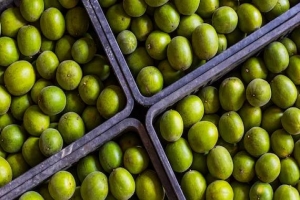 The regulation of Monk Fruit Extract (also known as Luo Han Guo extract) varies across different cou
The regulation of Monk Fruit Extract (also known as Luo Han Guo extract) varies across different cou
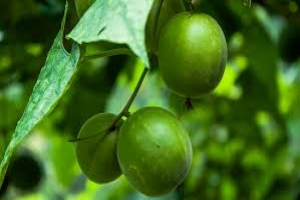 Health Canada Approves Monk Fruit Extract as a Natural Sweetener
Health Canada Approves Monk Fruit Extract as a Natural Sweetener
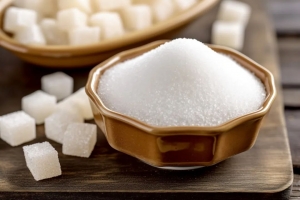 New Breakthrough in Allulose: A Healthier Sugar Alternative Gains Momentum
New Breakthrough in Allulose: A Healthier Sugar Alternative Gains Momentum
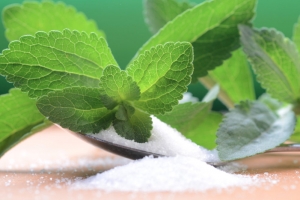 Understanding Reb-M: The Benefits of a Next-Generation Sweetener
Understanding Reb-M: The Benefits of a Next-Generation Sweetener